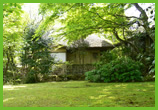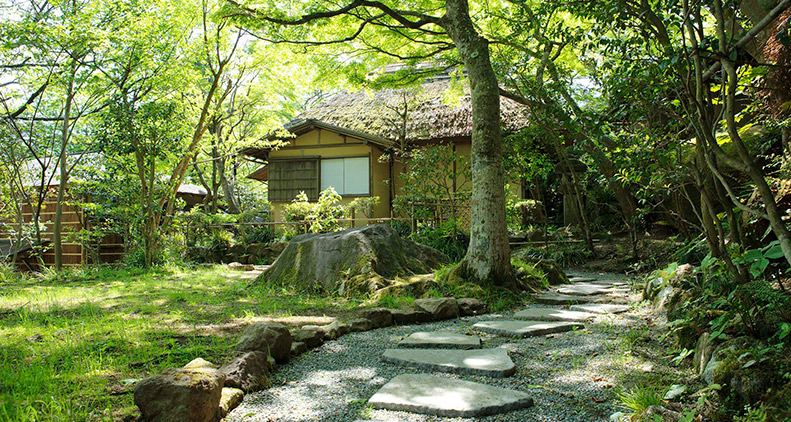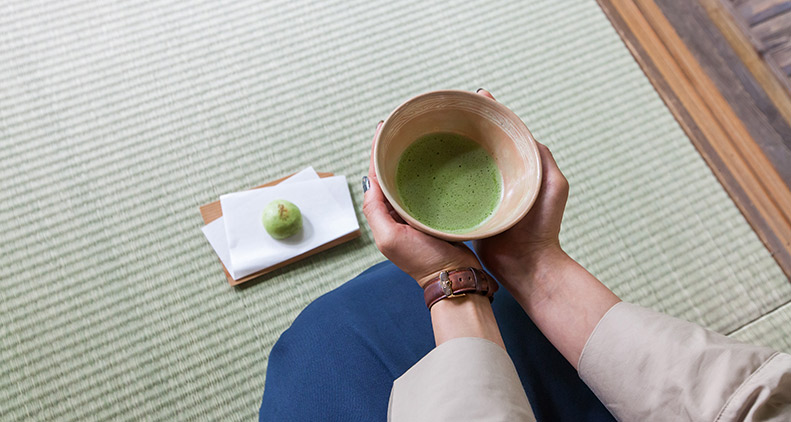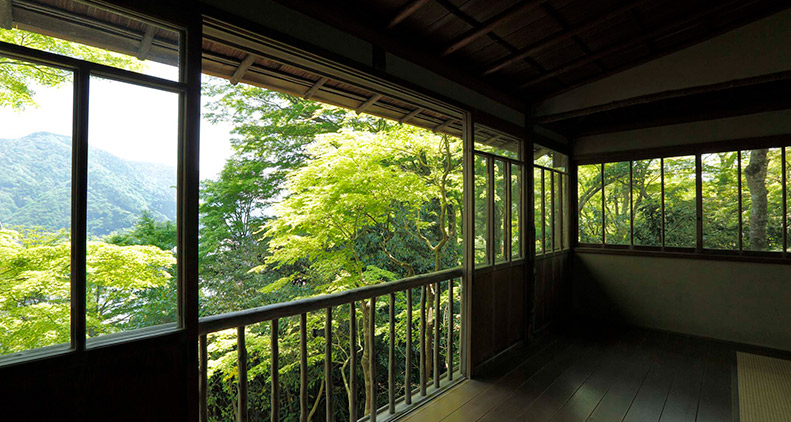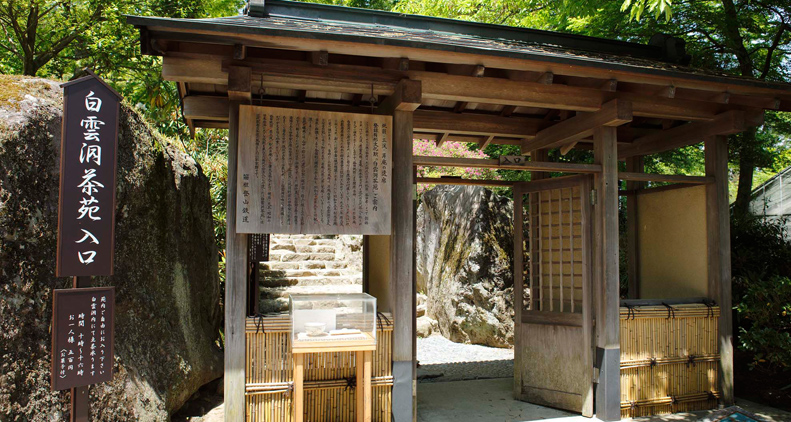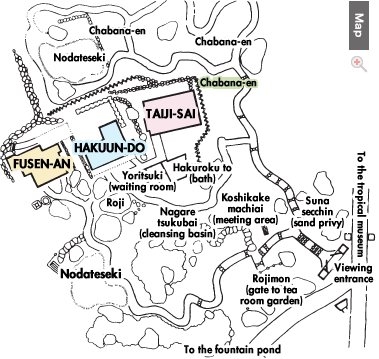Garden map/facilities
Tea ceremony
Famous for its tea ceremony, HAKUUN-DO tea garden is popular among young people and visitors from overseas as a friendly place where they can experience Japanese culture. It’s an open secret that matcha tea power and a pack of tea confectionary cost only ¥750.
- Tea serving
- Powdered tea and confection fee: ¥750
- Open hours
- Morning 10:00 am - 12:00 pm(Last Entry 11:30 am)
Afternoon 1:00 pm - 4:00 pm(Last Entry 3:30 pm)
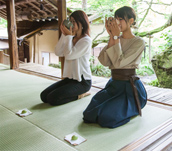
-
FUSEN-ANOugi Rodo major works
This is a 2¾ tatami mat room with a 4½ mat ‘yoritsuki’ waiting room attached, the waiting room doubling as a sitting room for accompanying people. The external pent roof is long and low to prevent too much brightness inside. Therefore the ‘crawl-through doorway’ was deemed unnecessary and removed, and the ceiling was clad in chestnut wood shingles to create a more authentic mountain villa feel. The cladding was not applied in the traditional way, and free-style detailing can be seen in many places.
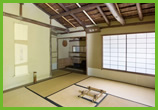
-
HAKUUN-DO
A prime example of a ‘country house’ setting popular among recent generations of tea masters, this consists of an eight-mat tea room in the style of an old mountain villa. The design of the borderless tatami around the ‘irori’ (sunken hearth) is in line with the freely designed frameless tea utensils used here. The alcove post(s), from Matsunaga’s time, are made of wood used 1,000 years ago in Taima-dera in Nara.
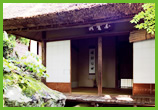
-
TAIJI-SAItea room cum living area
A tea room built by the second owner Sankei (Tomitaro Hara), facing Daimonjiyama, decorated with the name 'TAIJI-SAI' in Donno's own hand. The 8-mat room has a 4-mat preparation area attached.
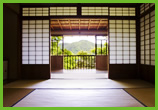
-
Chabana-enHAKUUN-DO tea garden annex
Chabana-en, situated behind the HAKUUN-DO Chaseki(tea rooms) complex, is a flower garden from which flowers for the tea room are collected. Different flowers bloom in each season. There are species which are commonly used in tea rooms, and other rare varieties to color the seasons.
